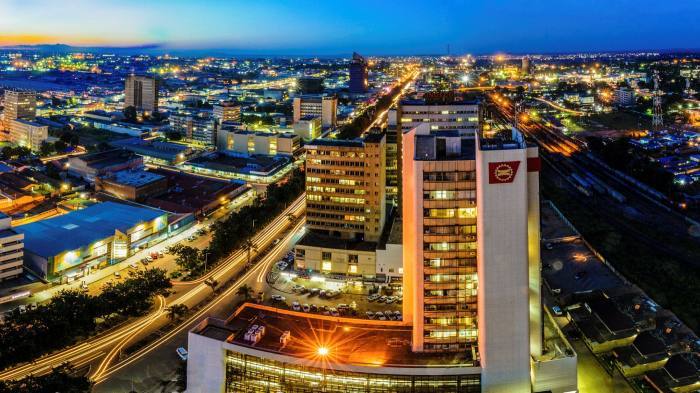
By Edwin Ikhuoria, ONE’s Africa Executive Director
It’s almost a year since the start of the COVID-19 pandemic, and no country has been spared the brutal economic and social impact.
While we’ve seen G20 countries mobilising more than $11 trillion in stimulus packages and printing additional money to combat COVID-19 in their own countries, others have struggled. Some of the world’s poorest countries don’t have the liquidity available to keep their economies afloat, tackle the emergency COVID-19 response, and provide social safety nets for the most vulnerable.
This is the case with Zambia.
Even before the pandemic, Zambia — Africa’s second-biggest copper producer — has struggled with its finances and debt. The country owes $11.1billion in private, bilateral and multilateral debt. For months, it has faced the difficult choice between making debt repayments, or keeping its economy afloat and investing in healthcare. While Zambia was eligible for debt service suspension from some of its bilateral creditors under the G20 Debt Service Suspension Initiative, this has had limited impact because of the composition of the country’s debt. Zambia requested other international creditors to follow suit, especially the private bondholders, who own 27% of the country’s debt and to whom Zambia owes $120 million in interest payments but to no avail. As no agreement has been reached on its request for a six-month delay on interest payments, Zambia today becomes the first African country to default on its loans since the start of the pandemic.
The cost is high. Defaulting gives Zambia a reputation for financial unreliability and could also trigger an economic crisis.
As a high-risk borrowing country, Zambia’s credit rating will be downgraded, making it more costly to raise funds, unless a new agreement is reached with bondholders. Other international creditors may also want to re-negotiate their debt deal and even make separate arrangements with Zambia. For some, this will be to help them get back on track; but for others, it is a priority to ensure they maximise their debt repayment. The biggest concern is that some of it will likely be under unfavourable terms for the country.
Here, transparency is critical. Questions about exactly how much the country owes to China has strengthened the case for bondholders’ reluctance to come to the negotiating table. But transparency is also critical for the responsible management of loans. In 2016, Mozambique defaulted on its infamous ‘tuna bond’ payment, which had started out as a secret loan. The default triggered an economic crisis, currency collapse and withdrawal of IMF and donor support.
While Zambia’s debt buildup predates the COVID-19 pandemic, the bottom line remains: at a time when Zambia is trying to manage the shock of COVID-19, the relentless pressure from international creditors, especially private creditors, is wrong and economically shortsighted.
This is a lose-lose situation – not only will the inability to borrow cheaply have a significant impact on Zambia’s path to recovery, but it may also take years before international creditors agree to a new debt payment plan. A prosperous country with economic growth is more likely to pay back and borrow more than a country declaring bankruptcy.
It may be too late for Zambia now, but we must ensure that other countries with a high probability of defaulting on their loans next year, such as Iraq, Sri Lanka, Angola and Gabon, won’t be faced with the same fate as Zambia.
Next weekend, the world’s biggest economies will come together and formally endorse the common framework on debt restructuring to help avoid this lose-lose situation. In order for it to work, however, all creditors — bilateral, multilateral and private — must join forces.
The COVID-19 pandemic must be seen and treated as a ‘force majeure’ to give poorer debtor countries the opportunity to adjust their fiscal positions to meet debt obligations. The current situation is definitely worse than the 2008 financial crisis but has been treated with less urgency and attention it deserves. Zambia may be the first country to default since the start of the pandemic, but if international creditors can’t work together, it certainly won’t be the last.
Like this:
Like Loading…











Comments